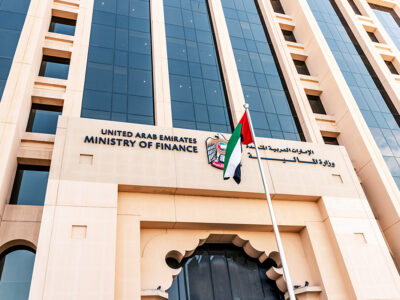Militant Group Al-Qassem Brigades (AQB) has ended its cryptocurrency donation campaigns in Bitcoin, citing successful government efforts to identify and prosecute donors.
According to a report by Blockchain research firm Chainalysis, the militant group raised tens of thousands of dollars’-worth of cryptocurrency through these efforts.
The donation campaign which began in 2019 was “one of the largest cryptocurrency-based terrorism financing campaigns ever seen,” Chainalysis Head of Sanctions Strategy, Andrew Fierman, told Arabian Business.
In response to law enforcement pressure, AQB’s donation campaigns have increased in sophistication over time, beginning with simple, static addresses hosted at mainstream exchanges and eventually levelling up to wallets that could generate unique addresses for each donor.
On Thursday, the militant group’s official website displayed a new message, in both English and Arabic, announcing the end of its crypto donation efforts, citing successful government efforts to identify and prosecute donors.
“The Al-Qassem Brigades extends its sincere thanks and appreciation to the masses of our people, our national, and the free people of the world for their continuous financial support, and announces the cessation of receiving financial donations through the digital currency Bitcoin, in order to ensure the safety of the donors in light of the intensification of the prosecution of those who try to support the resistance through this currency,” the AQB announcement stated.
AQB then followed up with other communications inviting supporters to make donations through “other available methods.”
According to Fierman, the easiest way to understand the evolution of this campaign is to divide it into three “sub-campaigns” based on the type of wallet used to receive donations.
In the first sub-campaign, AQB displayed a message on their website asking for Bitcoin donations through a QR code linked to a US-based exchange. Law enforcement then froze the associated account for investigation. The exchange was alerted, the account frozen, and the individual who established the campaign as well as the transactions that contributed to the accounts were investigated.
The second sub-campaign began when AQB replaced the exchange address with a new one linked to a private, non-custodial wallet.
“Nonetheless, cryptocurrency analysts were still able to trace donations to and withdrawals from the address with the help of Chainalysis,” Fierman said.
Following this, the third sub-campaign was launched, with a Bitcoin wallet integrated into their website that generated a unique Bitcoin address for each donor to which they could send contributions. The militant group also posted a video to its website in which it detailed how to donate “as anonymously as possible,” Fierman explained.
“The fact that the Al Qassam Brigades’ website-based wallet generated a new unique address for each donor made it more difficult to identify addresses associated with Sub-campaign 3 and track transactions in and out of those addresses. However, using court documents from associated cases and analysis of transactions from the first two sub-campaigns, we were able to discover addresses that received donations as part of the third sub-campaign. We then used Chainalysis Reactor to find many more addresses,” he said.
“As cited in their notice, AQB referenced one of their reasons for discontinuing cryptocurrency donations was for the safety of the donors. The continued pressure on these campaigns by law enforcement in the form of enforcement actions, seizures, and sanctions can deter the use of cryptocurrency by terrorist organizations.”
The AQB is a militant group that has been the target of multiple successful law enforcement efforts. AQB is believed to be responsible for carrying out several terrorist attacks, including the 2019 bombing of a bus in Egypt that killed four people, the 2019 suicide bombing in Afghanistan’s Kabul that killed 63, among many others.
The militant group is affiliated with Hamas, a Palestinian Sunni fundamentalist organization that has been designated as a terrorist group by many countries. The AQB’s affiliation with Hamas, as well as their history of violent attacks, has led them to be considered as a terrorist organization in many countries.
This goes to show that AQB, like many other bad actors using digital assets for illegal purposes, has learned that cryptocurrency is not crime-friendly, contrary to what many have been made to believe about the crypto world and decentralized finance, Chainalysis said in a blog post on Thursday.
Due to the transparent nature of Blockchain technology, law enforcement can track and trace funds used for illicit activity and eventually connect them to the people and entities behind it in real life. In addition, the immutability of blockchains means that such investigations may take place at any time, regardless of how long ago the crime was committed, as evidence of the transactions will remain available forever.
“AQB’s announcement today demonstrates that the best way to limit terrorist use of cryptocurrencies is by demonstrating their transparency and traceability. This makes them an undesirable method for fundraising,” Fierman said.
“As the largest public cryptocurrency-based terror financing campaign, AQB’s shift away from cryptocurrency highlights why the transparency of the blockchain is such an effective deterrent. Not only does it impact AQBs ability to operate under anonymity, but also impacts those who donate to the campaigns.”
The militant group’s campaigns have been the target of several law enforcement efforts. In August 2020, US authorities seized more than $1 million worth of cryptocurrency associated with AQB donations from an unlicensed cryptocurrency business in Gaza, Palestine.
Also, following a surge in donations that coincided with ‘Operation Guardian of the Walls’ in early 2021, Israeli authorities seized an undisclosed amount from several crypto wallets used by the militant group by July 2021. The operation was carried about by the Israel Security Agency, the National Bureau for Counter Terror Financing (NBCTF) in the Israeli defence ministry, as well as the Israeli police force.
NBTCF has followed up with additional successful cryptocurrency seizures from AQB and other terrorist groups since then.
Such actions are likely why AQB has now ceased the use of cryptocurrency to obtain illicit funding.
“This news represents a huge victory in the fight against crypto crime, and shows not only that illicit cryptocurrency transactions are possible to trace effectively, but also that agencies can raise the cost of illicit crypto use to such a degree that criminals are forced to give it up,” Chainalysis stated in a blog post on Thursday.









